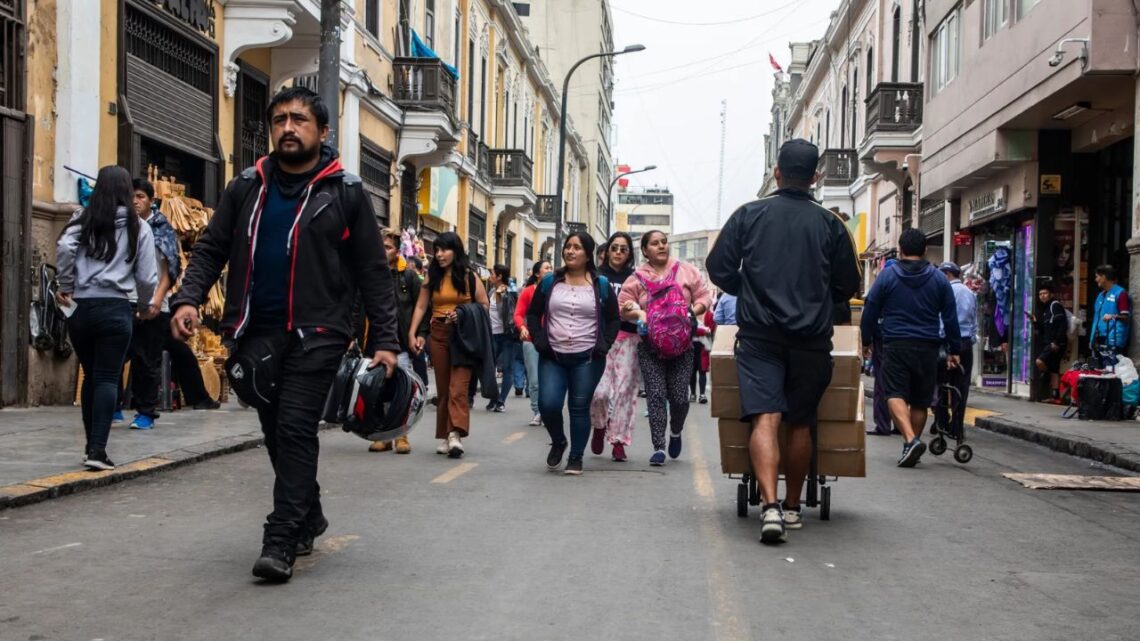Peru’s economy grew faster than expected in November, extending its recovery streak and signaling solid momentum into year-end.
Strong gains in fishing, agriculture, and manufacturing more than offset a soft patch in mining, while seasonally adjusted activity improved from October—clear signs that domestic demand and export-linked sectors are pulling in the same direction.
- Headline GDP (y/y): +3.93% in November
- Seasonally adjusted GDP (m/m): +1.12%
- Primary GDP: +4.9% (lift from fishing and hydrocarbons)
- Non-primary GDP: +3.7% (broad-based services and manufacturing)
- Fishing (y/y): +17.57% on robust anchovy landings
- Agriculture (y/y): +12.41% led by export crops
- Mining & hydrocarbons (y/y): −2.19%, mainly lower copper output
- Year-to-date (Jan–Nov): around +3.1% growth pace
These figures indicate a broadening recovery, with primary and non-primary activities contributing to the upside surprise.
What Drove the Beat?
1) Fishing & Primary Manufacturing
An especially strong anchovy season propelled fish landings for fishmeal and fish oil, which in turn boosted primary manufacturing.
This upstream-downstream combo is a classic tailwind for Peru’s monthly GDP prints.
2) Export-Led Agriculture
Double-digit growth in agriculture—particularly export-oriented crops—supported rural incomes and logistics chains, feeding into trade, transport, and related services.
3) Resilient Non-Primary Sectors
Services and non-primary manufacturing advanced, reflecting steadier domestic demand, normalization of supply chains, and improved business sentiment as inflation pressures eased from prior peaks.
4) Mining Soft Spot—But Contained
While mining slipped on lower copper extraction, parts of hydrocarbons helped cushion the fall. Crucially, the rest of the economy more than compensated, keeping overall GDP firmly in positive territory.
November at a Glance
| Indicator | November Result | What It Means |
|---|---|---|
| GDP (y/y) | +3.93% | Faster than forecast; broad-based improvement |
| GDP (m/m, sa) | +1.12% | Momentum beyond base effects |
| Primary GDP (y/y) | +4.9% | Fishing & hydrocarbons led gains |
| Non-primary GDP (y/y) | +3.7% | Services & manufacturing remained firm |
| Fishing (y/y) | +17.57% | Anchovy landings boosted output |
| Agriculture (y/y) | +12.41% | Export crops drove expansion |
| Mining & hydrocarbons (y/y) | −2.19% | Lower copper; partial offset from oil |
| Jan–Nov GDP | ~+3.1% | Recovery entrenched heading into year-end |
Why It Matters for 2025 Planning
- Diversification: The anchovy-agri-manufacturing triangle reduced reliance on mining, demonstrating that Peru’s growth engine is more balanced.
- Jobs & Income: Gains in labor-intensive segments (processing, logistics, trade) support household consumption.
- Policy Room: With growth broadening and inflation cooler than earlier peaks, there’s scope for stable policy settings, supporting investment and credit.
Outlook
The handoff to early 2025 looks constructive: exports tied to fishing and agriculture remain supportive, and services are on a steady footing.
Watch-items include commodity price volatility, climate risks (impacting fishing and crops), and the path of global demand.
Even so, Peru enters the new year with improving momentum and a healthier sector mix than a year ago.
Peru’s November results underscore a faster-than-forecast expansion powered by fishing, agriculture, and manufacturing, with services supporting a broader rebound.
Despite a mining drag, the economy showcased diversified strength, a solid m/m pulse, and a resilient year-to-date trajectory—positioning Peru for a firmer start to 2025.
